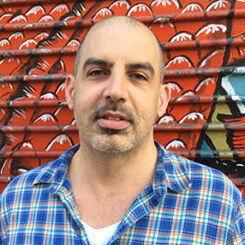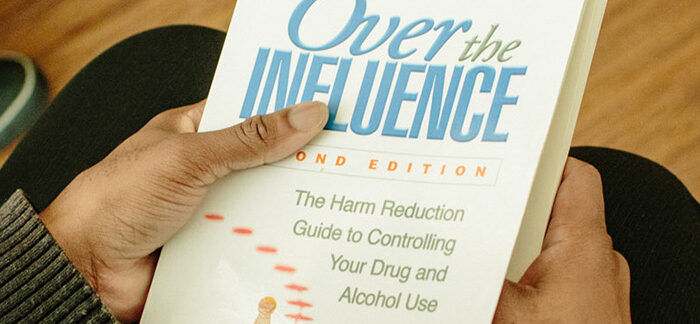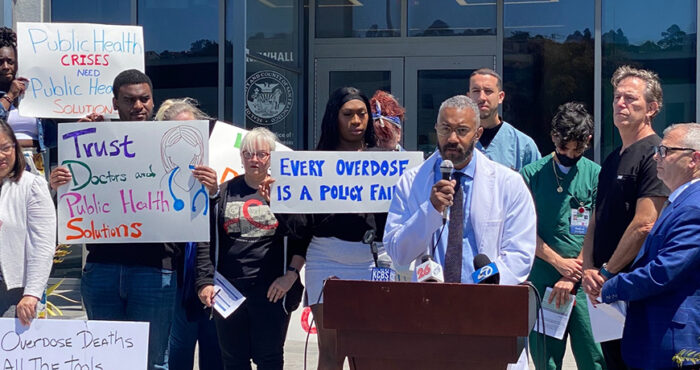Talking to a loved one about their meth use: Advice from a substance use counselor
Methamphetamine is one of the most stigmatized drugs in our society, and finding out that a loved one is using it may come as quite a shock. If you believe the depictions of people who use meth in the media, you may suspect that your partner/lover/family member/friend will soon lose their teeth and become a rail-thin zombie set on terrorizing the neighborhood. The stories of meth use are dramatic and horrifying, but quite misleading.
I’d like to share a more typical story of how meth use actually works in our world, based on the thousands of personal stories I’ve heard as a substance use counselor. Let us call our loved one, “James,” a gay man, and imagine what might be going on for him. (Please note that although our character in this story is a gay man, people of all gender identities and sexual orientations use meth for all kinds of reasons.)
James is a well-educated, professionally accomplished gay man who grew up in a rural community which was hardly gay-friendly. James knew he was gay before he even knew what gay meant, and he also knew that he would be persecuted if he lived his truth. He learned where to go in his neighborhood for anonymous gay sex, and he drank to intoxication every time he went to this cruising park to block his shame and fear of being caught. After starting to go to the one gay bar in his region, he noticed himself continuing to drink heavily since his shame followed him from the cruising park into the bar.
As time went on, James learned that he could not block his shame with drinking, and he could not stay employed drinking the way he did. One day at a party, after vastly reducing his drinking, James met someone who introduced him to “Tina,” and she made quite a first impression.
Tina became James’ party companion one weekend a month, then every weekend, and then the weekends started stretching from Thursday thru Monday. James learned that Tina could take his sex life to a whole new level, and eventually began to believe he could not have sex without it.
This story arc is quite common among those gay men who go to outpatient treatment, but it is the exception rather than the rule in the larger population. Most people who try meth never develop a problem with it, and most who start to have a problem make changes before they get to the point of seeking treatment.
The “James” in your life, whether he is your partner, your family member, your friend, or your co-worker may have a problem–and he may not. They may also feel they do not have a problem, while you disagree. Regardless of what you think, they will be the one to make decisions about their own substance use, and they will be less likely to talk to you about it if you demand that they stop using.
I have met many “mild” to “moderate” meth users whose partners are very heavy drinkers, sometimes coming home from the bars blackout drunk. But the partner making the demands has a zero tolerance policy for the meth use. The fact is that many people use meth and alcohol safely, but far more people die of alcohol-related causes than from meth use. Show me a person whose life has been destroyed by meth, and I will show you 20 who use it once or twice a year to enhance sex or keep that conversation going into the morning on an occasional three day weekend. Double standards target people who use stigmatized substances and normalize those who use alcohol.
The irony with meth use is that the more that people demand a person stop using it, the more likely the person is to develop a problem. The meth use will become more undercover, the person using it may have no one to safely talk about it, and perhaps the person using meth will start to see it as a way to show independence or to drown out the shame of being judged by family members or friends.
Interventions are popular on television shows, but they are not an effective strategy to help the vast majority of people misusing substances. Subjecting a person to an involuntary confrontation with many of his friends and family is not just ineffective, it is frequently very harmful to all involved.
OK, then what should I do?
Let’s assume you accept the premise that preaching and making demands may only make the situation worse. Still, you have reasonable concerns and want to play a positive role and help your “James” to stay healthy and safe.
Be curious about their meth use
You will only understand why they are using meth if you ask. People use it for many reasons, and sometimes they are not entirely clear themselves why they do it.
Use “I” statements
This may sound like therapy talk (and it is), but effective communication really does require that people take responsibility for their own thoughts and feelings rather than overgeneralize or make assumptions. Rather than say, “Meth is a poison that is killing our community,” you can say, “You feel distant when you are using.” Hold boundaries without condemning or making threats.
Know the facts
If you want to know if meth is causing harm, educate yourself about the characteristics of meth, and the patterns that can lead to problems. Learn more about evidence-based strategies to reduce harms associated with meth. Books such as Over the Influence, The Drug Users Bible, and Drugs Without the Hot Air provide accurate information and helpful harm reduction principles.
Explore your own internal process
If their meth use is really bothering you, it may be helpful to find out why. Talking to a professional or a trusted friend could be a good starting place. Are you more concerned about the actual harms of meth use, or about your preconceived notions regarding meth and the people who use it? You may fear you are losing them or that they are not the same person you knew before they started using. Your concerns and frustrations certainly may be realistic and accurate, but they may also be about other things going on for you.
Give your support
If the “James” in your life really does have a serious problem, they probably need your support. They may request assistance in navigating the process of getting peer support and/or professional treatment (we’ll list resources at the end of this article). They may just want you to listen without judging or telling them what to do. Those who do in fact have drug problems, and need help, are most successful in making changes if they are fortunate enough to have supportive people in their lives.
They may also not be interested in talking about their meth use, and may not think their meth use is problematic. Just as their substance use is their own choice, your role in their process (if any) is your own choice. You may need to establish strong boundaries, which could even mean breaking ties. It is important to be honest with yourself, and with them, regarding your capacity.
The harm reduction movement emphasizes autonomy in one’s drug use, compassion in relating with people who use drugs, and accurate information regarding the drugs they are using. Following these principles may be difficult at times, but they will ultimately create an environment that supports positive change.










